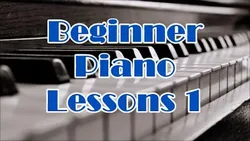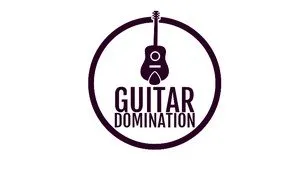
Piano III: Scales and Chords 
Get a comprehensive overview of Piano III: Scales and Chords ▼
ADVERTISEMENT
Course Feature
![]() Cost:
Cost:
Paid
![]() Provider:
Provider:
Kadenze
![]() Certificate:
Certificate:
Paid Certification
![]() Language:
Language:
English
![]() Start Date:
Start Date:
On-Demand
Course Overview
❗The content presented here is sourced directly from Kadenze platform. For comprehensive course details, including enrollment information, simply click on the 'Go to class' link on our website.
Updated in [May 19th, 2023]
Piano III: Scales and Chords is a course designed to help students continue to learn piano technique and repertoire through use of the C and G Major scales and primary chords. The course consists of five sessions, each containing a video lecture presented by the Instructor, piano practice assignments, and graded assignments that include a quiz about music terms, theory and/or ear training, and a video assessment of the student playing selected piano technique and repertoire. Additionally, the course includes a graded assignment for two concert reviews, which can be completed at any time during the course. Upon completion of the five sessions, the student will complete a final exam by performing a memorized piece of music and a piece learned by ear (Instructor’s Choice) for an audience. The memorized piece will be the student’s choice from Sessions 4 or 5 in this course, and must be digitally recorded and uploaded as an additional video assessment.
[Applications]
Upon completion of this course, students should be able to apply their knowledge of scales and chords to their own piano playing. They should be able to identify and play scales and chords in C and G Major, as well as be able to play a memorized piece of music for an audience. Additionally, students should be able to compose their own music using the scales and chords they have learned. Finally, students should be able to review and critique a live concert performance.
[Career Paths]
Job Position Paths:
1. Piano Teacher: Piano teachers provide instruction to students of all ages and skill levels. They teach students how to read music, play scales and chords, and develop their technique. They also help students develop their repertoire and performance skills. As technology advances, piano teachers are increasingly using online platforms to teach students remotely.
2. Music Composer: Music composers create original music for a variety of media, including film, television, video games, and commercials. They use their knowledge of music theory, scales, and chords to create unique and memorable compositions. As technology advances, music composers are increasingly using digital audio workstations to create and produce their music.
3. Music Producer: Music producers are responsible for overseeing the production of music recordings. They work with artists to create the best possible sound for their recordings, and use their knowledge of scales and chords to create unique and interesting musical arrangements. As technology advances, music producers are increasingly using digital audio workstations to create and produce their music.
4. Music Therapist: Music therapists use music to help people with physical, emotional, and mental health issues. They use their knowledge of scales and chords to create therapeutic music that can help people relax, reduce stress, and improve their overall wellbeing. As technology advances, music therapists are increasingly using digital audio workstations to create and produce their music.
[Education Paths]
Recommended Degree Paths:
1. Bachelor of Music: This degree program provides students with a comprehensive education in music theory, composition, performance, and music history. Students will learn to read and write music, develop their skills in playing instruments, and gain an understanding of the history and development of music. This degree is ideal for those who wish to pursue a career in music performance, composition, or teaching. Additionally, the degree provides a strong foundation for those who wish to pursue graduate studies in music.
2. Master of Music: This degree program is designed for those who wish to pursue advanced studies in music. Students will gain a deeper understanding of music theory, composition, performance, and music history. Additionally, students will develop their skills in conducting, arranging, and teaching music. This degree is ideal for those who wish to pursue a career in music performance, composition, or teaching.
3. Doctor of Musical Arts: This degree program is designed for those who wish to pursue the highest level of music education. Students will gain an in-depth understanding of music theory, composition, performance, and music history. Additionally, students will develop their skills in conducting, arranging, and teaching music. This degree is ideal for those who wish to pursue a career in music performance, composition, or teaching at the highest level.
Developing Trends:
1. Technology: Technology is playing an increasingly important role in music education. Students are now able to access online resources, such as streaming audio and video, to supplement their studies. Additionally, technology is being used to create new instruments and soundscapes, as well as to facilitate collaboration between musicians.
2. Music Therapy: Music therapy is becoming an increasingly popular field of study. Music therapy is the use of music to promote physical, emotional, and cognitive development. Music therapists use music to help individuals with physical, emotional, and cognitive disabilities.
3. Music Business: Music business is becoming an increasingly important field of study. Students are now able to learn about the business side of the music industry, such as marketing, promotion, and distribution. Additionally, students are able to learn about the legal aspects of the music industry, such as copyright law and licensing.
Course Provider

Provider Kadenze's Stats at AZClass
Discussion and Reviews
0.0 (Based on 0 reviews)
Explore Similar Online Courses

Computational Neuroscience: Neuronal Dynamics of Cognition

Learn JavaScript for free

Python for Informatics: Exploring Information

Social Network Analysis

Introduction to Systematic Review and Meta-Analysis

The Analytics Edge

DCO042 - Python For Informatics

Causal Diagrams: Draw Your Assumptions Before Your Conclusions

Whole genome sequencing of bacterial genomes - tools and applications

Piano Lessons For Beginners Series - How To Play Piano

Guitar Performance Techniques


Start your review of Piano III: Scales and Chords